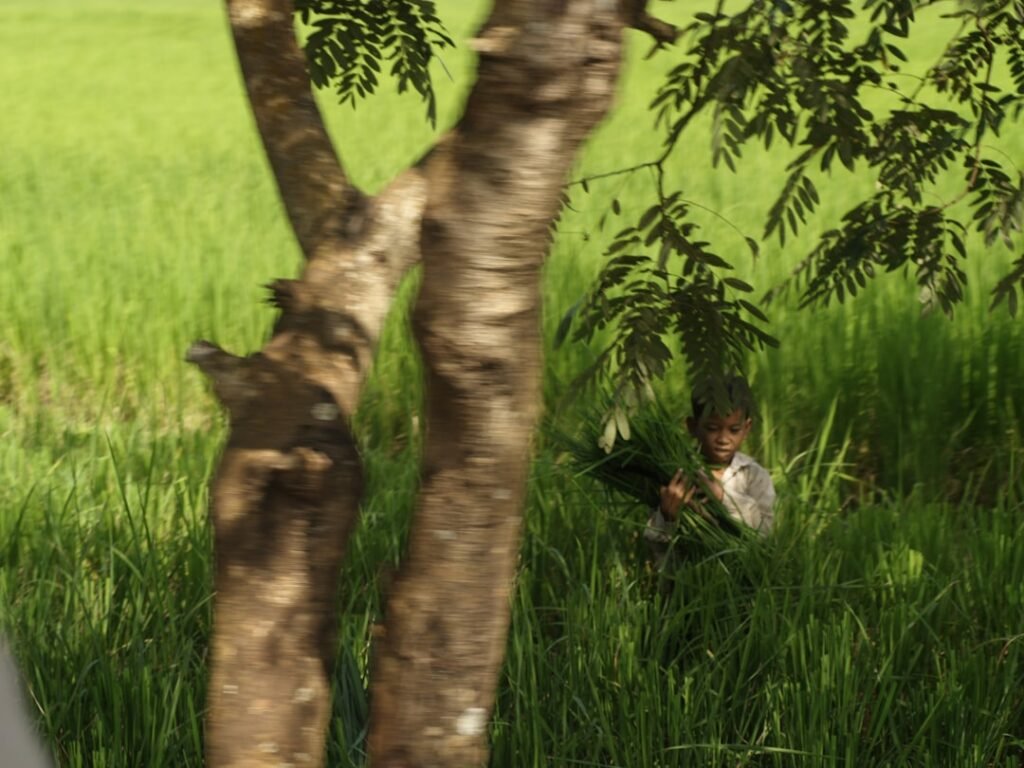Now Reading: The Most Punishing Games for Bad Decisions
-
01
The Most Punishing Games for Bad Decisions
The Most Punishing Games for Bad Decisions

As a gamer, I have often found myself drawn to the allure of punishing games. These titles, known for their unforgiving mechanics and high stakes, create an environment where every decision counts. The thrill of overcoming challenges and the satisfaction of mastering difficult gameplay can be incredibly rewarding.
However, the path to success in these games is often littered with failures, forcing players like me to confront our mistakes head-on. In this article, I will explore various punishing games that have left a lasting impression on me, examining how they challenge players and the lessons they impart. Punishing games are not merely about difficulty; they are about the experience of learning through failure.
Each setback serves as a lesson, teaching me to adapt my strategies and refine my skills. The sense of accomplishment that comes from finally overcoming a seemingly insurmountable obstacle is unparalleled. In this exploration, I will delve into several notable titles, each offering unique challenges and insights into the nature of failure and perseverance in gaming.
Key Takeaways
- Punishing games like Dark Souls, XCOM 2, Darkest Dungeon, The Binding of Isaac, Cuphead, Bloodborne, FTL: Faster Than Light, Don’t Starve, and Hotline Miami challenge players with tough consequences for mistakes.
- Dark Souls series punishes players for mistakes with difficult enemies and unforgiving gameplay, encouraging careful and strategic play.
- XCOM 2 emphasizes the consequences of tactical errors by punishing players with permanent character deaths and failed missions.
- Darkest Dungeon requires players to manage risk and consequences, as poor decisions can lead to the death of their characters and failure in the game.
- The Binding of Isaac punishes players for poor item choices, making it crucial for players to carefully consider their decisions and adapt to the situation.
- Cuphead encourages learning from failure and improving, as players face challenging boss battles and must adapt their strategies to succeed.
- Bloodborne punishes players for reckless attacks, requiring careful and calculated combat to survive and progress in the game.
- FTL: Faster Than Light deals with the fallout of bad decisions, as players must manage their resources and crew to survive the harsh conditions of space.
- Don’t Starve challenges players to survive the consequences of poor planning, as they must gather resources and manage their character’s needs to stay alive.
- Hotline Miami showcases the brutal consequences of careless actions, as players must carefully plan their approach and execute their moves to succeed in the game.
- In conclusion, punishing games offer valuable lessons in learning from mistakes and improving strategies, making them a unique and rewarding experience for players.
Dark Souls Series: Punishing Players for Mistakes
The Dark Souls series stands as a paragon of punishing gameplay, renowned for its brutal difficulty and intricate world design. From the moment I first stepped into Lordran, I was acutely aware that every misstep could lead to my demise. The game’s mechanics are unforgiving; enemies are relentless, and death is a frequent companion.
However, it is precisely this challenge that makes the experience so compelling. Each time I fell to a formidable foe, I learned something new about my approach, whether it was timing my dodges or understanding enemy patterns. What truly sets Dark Souls apart is its unique approach to death.
Instead of merely being a setback, dying in Dark Souls serves as a crucial part of the learning process.
The game encourages me to embrace failure as a stepping stone toward mastery.
This cycle of trial and error fosters a sense of resilience, pushing me to confront challenges with renewed determination.
XCOM 2: The Consequences of Tactical Errors

In XCOM 2, the stakes are high, and every tactical decision can have dire consequences. As I lead my squad against an alien invasion, I quickly learned that poor planning could lead to devastating losses. The permadeath feature adds an extra layer of tension; when a soldier falls in battle, they are gone for good.
This reality forces me to think critically about my choices and consider the potential fallout of each action. The weight of responsibility hangs heavy on my shoulders as I strategize my moves. The game’s turn-based mechanics require me to weigh risks carefully.
Each mission presents a new set of challenges, and I must adapt my tactics based on the evolving battlefield. When I make a mistake—whether it’s misjudging enemy positions or failing to account for environmental hazards—I am reminded of the importance of foresight and adaptability. XCOM 2 teaches me that every decision carries weight, and the consequences of my actions can ripple through the entire campaign.
Darkest Dungeon: Managing Risk and Consequences
Darkest Dungeon takes the concept of punishing gameplay to new heights by intertwining mental health with physical challenges. As I venture into the depths of the dungeon, I must manage not only my heroes’ health but also their stress levels. The game’s relentless atmosphere creates a sense of dread that permeates every decision I make.
Each encounter with grotesque monsters tests my resolve, and the consequences of failure can be dire—heroes can succumb to madness or even die in battle. The need for careful resource management adds another layer of complexity to the experience. I must balance upgrading my heroes with maintaining their mental well-being, all while navigating treacherous dungeons filled with traps and enemies.
Darkest Dungeon forces me to confront the reality that risk is an inherent part of any adventure. The game teaches me that sometimes, taking calculated risks can lead to great rewards, but it also reminds me that failure can have lasting repercussions.
The Binding of Isaac: Punishing Players for Poor Item Choices
The Binding of Isaac presents a unique twist on punishing gameplay through its roguelike structure and item-based mechanics. Each run is a new opportunity for exploration, but it also comes with the risk of making poor item choices that can drastically affect my chances of survival. As I navigate the randomly generated levels, I am constantly faced with decisions that can either empower or hinder me.
A single bad item can turn an otherwise promising run into a struggle for survival. The game’s permadeath mechanic means that every run is significant; when I die, I lose everything and must start anew. This cycle of trial and error forces me to learn from my mistakes and adapt my strategies based on the items I acquire.
The Binding of Isaac teaches me that not all choices are equal; some items synergize beautifully while others can lead to disaster. This constant evaluation of risk versus reward keeps me engaged and encourages me to think critically about each decision.
Cuphead: Learning from Failure and Improving

Cuphead is a visually stunning game that pays homage to classic animation while delivering an incredibly challenging experience. From the moment I began my journey through its whimsical yet treacherous world, I was met with relentless bosses that tested my reflexes and patience. Each encounter felt like a dance between life and death, where one wrong move could lead to instant defeat.
However, it is through these failures that I found opportunities for growth. The beauty of Cuphead lies in its ability to teach through repetition. Each time I faced a boss, I learned more about their attack patterns and how to counter them effectively.
The game encourages me to embrace failure as part of the learning process; with each defeat, I refine my skills and develop new strategies. This cycle of trial and error fosters a sense of determination within me, pushing me to improve until I finally conquer each challenging foe.
Bloodborne: Punishing Players for Reckless Attacks
Bloodborne offers a dark and atmospheric experience that punishes players for reckless aggression. As I traverse the haunting streets of Yharnam, I quickly learned that charging headfirst into battle without caution could lead to swift death. The game rewards patience and precision; timing my attacks and dodges is crucial for survival.
Bloodborne teaches me that aggression must be tempered with strategy; sometimes, waiting for the right moment to strike is more effective than rushing in blindly. The visceral combat system adds an extra layer of intensity to each encounter. When I successfully land a hit on an enemy, I am rewarded with opportunities for counterattacks, but this requires careful timing and positioning.
Bloodborne emphasizes the importance of learning from mistakes; each death serves as a reminder to approach combat with caution and respect for my foes. This balance between aggression and strategy creates a thrilling experience that keeps me engaged throughout my journey.
FTL: Faster Than Light: Dealing with the Fallout of Bad Decisions
In FTL: Faster Than Light, every decision carries weight as I navigate the vastness of space in search of survival. As captain of my ship, I must manage resources, crew morale, and ship upgrades while facing unpredictable encounters along the way. The game’s permadeath mechanic means that when my ship is destroyed, it’s game over—forcing me to confront the consequences of my choices head-on.
The unpredictability of each playthrough keeps me on my toes; one wrong decision can lead to catastrophic results. Whether it’s mismanaging fuel supplies or failing to respond effectively to enemy attacks, FTL teaches me that adaptability is key in the face of adversity.
Don’t Starve: Surviving the Consequences of Poor Planning
Don’t Starve immerses me in a harsh wilderness where survival hinges on careful planning and resource management. From gathering food to crafting tools, every action has consequences that can impact my chances of survival. The game’s permadeath mechanic means that when I die—whether from hunger or monster attacks—I lose everything and must start anew.
This reality forces me to think critically about my choices and plan ahead. The unpredictability of the environment adds an extra layer of challenge; seasons change, bringing new threats and opportunities for resource gathering. Don’t Starve teaches me that preparation is essential; neglecting basic needs can lead to dire consequences.
Each playthrough becomes an opportunity for growth as I learn from past mistakes and refine my strategies for survival in this unforgiving world.
Hotline Miami: The Brutal Consequences of Careless Actions
Hotline Miami delivers a fast-paced experience where split-second decisions can mean the difference between life and death. As I navigate through levels filled with enemies, I quickly learned that carelessness could lead to brutal consequences. The game’s emphasis on quick reflexes and strategic planning forces me to think critically about each encounter; one wrong move can result in instant failure.
The satisfaction of executing a flawless run is unparalleled; however, it requires practice and patience to master each level’s intricacies. Hotline Miami teaches me that success often comes from learning from failure; each death serves as a lesson in timing and strategy. This cycle of trial and error keeps me engaged as I strive for perfection in an unforgiving world.
Learning from Punishing Games
In conclusion, punishing games offer more than just a challenge; they provide valuable lessons in resilience, strategy, and adaptability. Through experiences in titles like Dark Souls, XCOM 2, Darkest Dungeon, The Binding of Isaac, Cuphead, Bloodborne, FTL: Faster Than Light, Don’t Starve, and Hotline Miami, I have come to appreciate the importance of learning from failure. Each setback serves as an opportunity for growth, pushing me to refine my skills and approach challenges with renewed determination.
These games remind me that failure is not an endpoint but rather a stepping stone toward mastery. Embracing the lessons learned from punishing gameplay has enriched my gaming experience and instilled a sense of perseverance within me. As I continue my journey through various gaming worlds, I carry these lessons with me—ready to face whatever challenges lie ahead with confidence and resilience.
If you’re interested in exploring the world of indie games, you may want to check out this article on the website. Indie games often offer unique gameplay experiences and can be a great way to test your decision-making skills in a different setting. Some indie games are known for punishing bad decisions even harder than mainstream titles, making them a challenging yet rewarding choice for gamers looking to push themselves.
FAQs
What are some examples of games that punish bad decision-making the hardest?
Some examples of games that are known for punishing bad decision-making include Dark Souls, XCOM: Enemy Unknown, and Darkest Dungeon.
How do these games punish bad decision-making?
These games punish bad decision-making by implementing harsh consequences for mistakes, such as permanent character death, loss of progress, or increased difficulty.
Why do some games choose to punish bad decision-making so severely?
Some game developers believe that punishing bad decision-making adds to the challenge and overall experience of the game, creating a sense of tension and urgency for the player.
Are there any benefits to playing games that punish bad decision-making?
Playing games that punish bad decision-making can help improve critical thinking skills, strategic planning, and the ability to adapt to unforeseen circumstances.
Are there any drawbacks to playing games that punish bad decision-making?
Some players may find the high level of punishment for mistakes to be frustrating or discouraging, leading to a negative gaming experience.



























